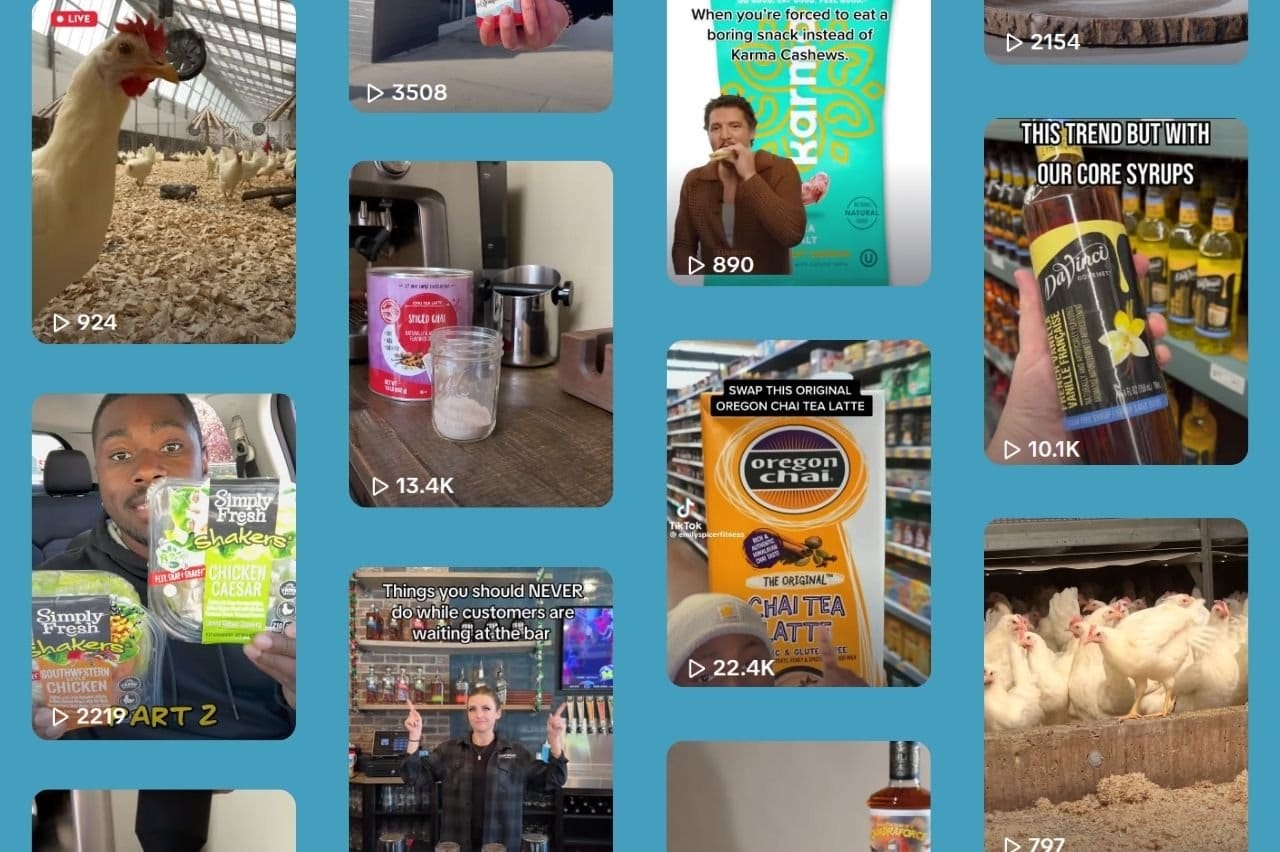Meta Removes Fact Checkers: What Food & Beverage Brands Need to Know

‘This Is Not A Drill’ – A New Era for CPG Food & Beverage Brands
Meta – the parent company of Facebook and Instagram – has made significant changes to its fact-checking program. The implications will rock the social media landscape.
Some critics believe the move could have disastrous social consequences. Others think it’s long overdue, claiming that it’s unreasonable to expect social media platforms to serve as arbiters of truth and fiction.
Regardless, this move presents a seismic shift for all industries. And for CPG food and beverage brands, this shift brings both opportunities and challenges in how they approach their social media marketing strategies.
It will drastically affect which brands fail and those that survive and thrive. We’re entering a new era.
RELATED: Are Hashtags Still Relevant?
As platforms continue to redefine their role in content moderation, brands must adapt their approaches. Because it will be harder than ever to maintain consumer trust and meet regulatory compliance.
The game may have changed… But the rules remain the same.
Understanding Meta’s Fact-Checking Program: Past and Present
Meta’s fact-checking program was initially launched to combat misinformation and ensure content accuracy across its platforms. Third-party fact-checkers reviewed flagged content, including advertisements, and could label posts as false, altered, or missing context. You probably noticed that your feed changed once they started doing this.
For food and beverage brands, this meant careful scrutiny of health claims, ingredient benefits, and marketing messaging.
Previously, fact-checkers could:
- Review product claims and nutritional information
- Flag misleading health benefits or unsubstantiated statements
- Affect ad delivery and reach based on accuracy ratings
- Impact organic content visibility and sharing capabilities
The program particularly affected functional foods and beverages, supplements, and products making specific health claims. Brands often needed to provide substantial scientific evidence to support their marketing claims, leading to longer approval processes but also greater consumer confidence in advertised benefits.
But those days are gone.
The Transition Away from Fact-Checking
Meta’s decision to scale back its fact-checking program reflects broader changes in social media content moderation. While the company maintains its commitment to community standards, the removal of third-party fact-checkers represents a significant shift in how content accuracy is verified and monitored.
The platform now relies more heavily on artificial intelligence, user reporting, and internal review processes to moderate content. This change affects not only organic posts but also paid advertising content, creating a new landscape for brands to navigate.
What This Means for Food & Beverage Brands
Opportunities
For CPG brands, this change presents several potential advantages:
- Streamlined Ad Approval Process
- Faster campaign deployment with fewer review layers
- More flexibility in messaging and creative approaches
- Reduced review times for new content and campaigns
- Ability to respond more quickly to market trends
- Greater agility in seasonal and time-sensitive promotions
- Enhanced Creative Freedom
- Greater ability to highlight product benefits and features
- More room for innovative marketing approaches
- Increased flexibility in promotional messaging
- Opportunity for more diverse content strategies
- Freedom to experiment with different messaging angles
Challenges and Considerations
However, this shift also brings important considerations:
- Brand Safety Concerns
- Increased risk of association with misleading content
- Greater responsibility for self-regulation
- Need for enhanced internal fact-checking processes
- Potential exposure to controversial conversations
- Higher stakes for brand reputation management
- Consumer Trust Implications
- Heightened scrutiny from conscious consumers
- Importance of maintaining credibility
- Need for transparent communication
- Increased demand for verification from customers
- Greater emphasis on building community trust
Adapting Your Marketing Strategy
Best Practices for the New Environment
- Strengthen Internal Verification
- Implement robust fact-checking protocols
- Document claims and supporting evidence
- Maintain compliance with FDA and FTC guidelines
- Establish clear approval workflows
- Create detailed documentation processes
- Regular team training on compliance requirements
- Focus on Brand Credibility
- Build trust through transparent communication
- Use third-party certifications and validations
- Maintain consistent messaging across platforms
- Share behind-the-scenes content
- Highlight quality control processes
- Partner with credible industry experts
- Monitor Community Feedback
- Engage with customer comments and concerns
- Address misinformation promptly
- Utilize community management tools effectively
- Track sentiment across platforms
- Develop response protocols for various scenarios
Leveraging Meta’s Remaining Safety Features
While third-party fact-checkers may be gone, Meta still offers various tools and features to maintain content quality:
- Community Standards
- Adherence to platform guidelines
- Content moderation tools
- Reporting mechanisms
- Account verification processes
- Content warning systems
- Community Notes
- User-generated feedback
- Collaborative fact-checking
- Community-driven accuracy
- Peer review mechanisms
- Reputation systems
Moving Forward: Strategic Recommendations
All brands should be altering their Meta advertising strategy right now. This includes both organic and paid campaigns. Everyone who uses Instagram, Facebook, Threads and (even) WhatsApp should pay close attention.
This is particularly important in the food & beverage space, where it’ll start becoming harder to earn consumer trust.
Short-term Actions
- Audit Current Content
- Review existing claims and messaging
- Update documentation processes
- Assess compliance with current regulations
- Evaluate competitive landscape
- Identify potential risk areas
- Document verification sources
- Update Guidelines
- Revise internal content approval processes
- Develop fact-checking protocols
- Train team members on new procedures
- Create crisis management plans
- Establish clear roles and responsibilities
- Set up monitoring systems
Long-term Planning
- Build Trust Infrastructure
- Develop relationships with industry experts
- Create content verification systems
- Establish crisis management protocols
- Invest in community building
- Create educational content
- Foster transparent communication channels
- Enhance Monitoring Capabilities
- Implement social listening tools
- Track brand mentions and sentiment
- Monitor competitor approaches
- Analyze industry trends
- Measure engagement metrics
- Assess content performance
Food & Beverage Industry Impact and Future Considerations
The removal of Meta’s fact-checking program may signal a broader shift in social media content moderation. Brands should prepare for similar changes across other platforms and consider how this might affect their overall digital marketing strategy. This includes:
- Cross-Platform Strategy
- Developing platform-specific approaches
- Maintaining consistent brand voice
- Adapting to varying verification requirements
- Creating platform-appropriate content
- Future-Proofing
- Building flexible marketing frameworks
- Investing in proprietary verification tools
- Developing strong brand authority
- Creating adaptable content strategies
What’s Next?
The removal of Meta’s fact-checkers marks a significant shift in social media marketing. Yes, that’s an understatement… But for food and beverage brands, success in this new environment requires a balanced approach: maintaining high standards of accuracy while taking advantage of increased creative flexibility.
By implementing robust internal processes and focusing on transparency, brands can continue to thrive on Meta’s platforms while building and maintaining consumer trust.
Remember, while external fact-checking may have changed, the fundamental principles of honest marketing and consumer trust remain paramount.
Brands that maintain high standards of accuracy and transparency will continue to build lasting relationships with their audiences, regardless of platform changes. The key to success lies in adapting to these changes while staying true to core brand values and consumer trust.
Need help navigating your CPG brand through this new landscape? Reach out!


